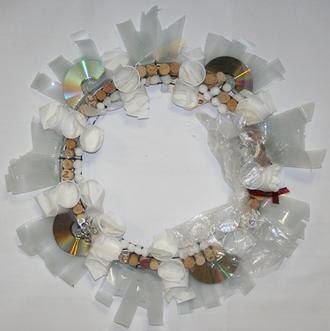
Importance of Recycling There are many ways that we can help in the world. One of them is by recycling. By recycling, you don’t only cut down on the waste in landfills; you also reduce the amount of energy, water, and air pollution that is wasted. That’s not the only reason you should recycle. Another reason is because according to Emily from Live Renewed, trees close to 150 years old (virgin trees) are chopped down, just for toilet paper, and if every household replace one roll of virgin toilet paper with one roll of recycled toilet paper, than over 450,000 trees would be saved! Finally you should recycle because it ends up saving money, you might say that using recycled materials costs a little more, but if you spend less money on the expensive toilet paper, by buying the recycled kind, than you can use all the extra money you save, on other recycled materials. So in the end you aren’t spending anymore than before.How Can You Help? There are many ways that you can recycle. One of them is by using cloth materials instead of paper, by doing so you eliminate excess waste in our landfills. The second way that you can recycle is by using 100% recycled products, you can start by buying recycled back to school supplies, and slowly make your way to buying everything you can, recycled. Finally you can recycle by making a compost bin. A compost bin is where you can throw peels, and other recyclable materials so they can biodegrade. If you don’t think you’re ready for a compost bin, you can start with using garbage bags that are made from recycled plastic. Recycling is a good way to get one step closer to making our world a better place.
According to wwww.livestrong.com by recycling, you can also save many animals. You can do this by throwing away your plastic bags because the plastic bags that get thrown into the ocean can kill up to 1 million seabirds, and 100,000 marine animals in just one year! Only about 1% of plastic bags that are used get recycled, and up to 80% of the ones that weren't recycled end up in the oceans. What Can Be Recycled? A few things that are recyclable are, steel, glass, aluminum, cans, foil, plastic, paper, trophies, bottle caps, jar caps, and much more. Some things that can’t be recycled that you could sell or reuse are electronics, paint, crayons, corks, CD/DVD, cassettes, eyeglasses, fishing line, gift cards, ink cartridges, and much more. Most people would have thrown out about half, if not all of these materials. Most Americans throw away around 80% of stuff that can be recycled. According to www.recycling-revolution.com recycling just 1 aluminum can, can give you enough energy to watch TV for around 3 hours. Greenopolis.com states that the American recycling rate is only 31.5% and should be higher, in order to save trees and other wildlife. Recycling Water What does Percy Julian Do? You don’t have to stop recycling once you get to school either! District 97 does so much to help our planet that it will be hard to name all the ways! One way we can help our planet at school is by having a recycling bin in each room and hallway. That will eliminate all of the waste that goes into our landfills each day! Another way you can help out our planet at school is by participating in the locker cleanouts. When you clean out your locker there will always be a table outside of the locker bay where you can put all of your materials that you don’t use anymore, but aren’t ready for the trash yet. If you put these items on the table then another student who needs that item can grab it for free! A third way you can help our planet at school is by following the rules, and not bringing your lunch outside. This will ensure that our school does as little littering as possible. The final way we can help our planet at schools is by doing art projects using cans and other recycled materials to make a collage. By doing these simple things you can help our world become a place where we want to live. Below is an image of a wreath Julian students built for an Art Competition through the Shedd Aquariam. Click here for the full Story!
What does St. Marks Do? As a part of sustaining green environment on earth, Earth Saviours Eco Club members of St.Mark’s Sr.Sec.Public School, Meera Bagh, did their small bit towards mother earth. They collected old mobile phones and accessories related to mobile phones. Students were encouraged to bring old phones, which were handed over for recycling to Nokia as a part of the campaign “Planet ke rakhwale”(means guardians of the planet). These phones will be recycled properly in the Chennai plant. This will prevent illegal recycling of waste which is hazardous for children, who are forcefully made to do that. |
Text by: Nakif Olivia and Parthenia of PJMS
Eco club description by students of St. Marks
Wreath Photo provided by Julian Art Club
Original Drawings by students of Boglari
Template Designed by Students of PJMS
Software Used:
- Dreamweaver
- Imovie
- You Tube
Logo Image Provided by: GSBI
Works Cited
Benefits of Recyling. "What Materials Can Be Recycled?" Benefits of Recycling. Benefits of Recycling, 2013. Web. 21 Mar. 2013.
http://www.benefits-of-recycling.com/whatmaterialscanberecycled/.
Branz. "Assessing Waste Streams." Welcome to Branz. Branz, n.d. Web. 21 Mar. 2013. http://www.branz.co.nz/cms_display.php?sn=105 .
Do Something.org. "11 Facts About Recycling." Do Something. Do Something.org, 2012. Web. 21 Mar. 2013.
http://www.dosomething.org/actnow/tipsandtools/11-facts-about-recycling .
Garden Gate Magazine. "Issue 52 How to Harvest Rainwater." Garden Gate Magazine. August Home Publishing Company, n.d. Web. 21 Mar. 2013.
http://www.gardengatemagazine.com/52droughttolerant/
GreenOps LLC. "Making Recycling Matter." Greenopolis. GreenOps LLC., 2010. Web. 21 Mar. 2013. http://greenopolis.com/
LaLiberte, Kathy. "Rain Barrel How-To." Gardeners Supply. Gardeners Supply, 2013. Web. 21 Mar. 2013.
http://www.gardeners.com/Rain-Barrel-How-To/5497,default,pg.html . McClements, Emily. "Why You Should Choose Recycled Products."
Green Your Way. Lifetime Digital, 23 Aug. 2011. Web. 21 Mar. 2013. http://green.yourway.net/why-you-should-choose-recycled-products/ .
Recycling-Revolution. "Recycling Facts." Recycling-revolution.com. Recycling-Revolution, 2011. Web. 21 Mar. 2013.
http://www.recycling-revolution.com/recycling-facts.html .
Schirm, Matthew. "Going Green Activities." LIVESTRONG.COM. Livestrong.com, May 2010. Web. 21 Mar. 2013.
http://www.livestrong.com/article/121439-going-green-activities/ .
Texas A&M AgriLife Extension Service. "Rainwater Harvesting." Texas A&M AgriLife Extension Service. Texas A&M AgriLife Extension Service, 2013.
Web. 21 Mar. 2013. http://rainwaterharvesting.tamu.edu/rainwater-basics/ .
WRAP. "Can It Be Recycled?" Recycle Now. WRAP, 2013. Web. 21 Mar. 2013. http://www.recyclenow.com/what_can_i_do_today/can_it_be_recycled/ .
Boglári Általános Iskola
Balatonboglár. Hungary
Percy Julian Middle School
Oak Park, Illinois USA
ST Marks School
New Delhi, India
